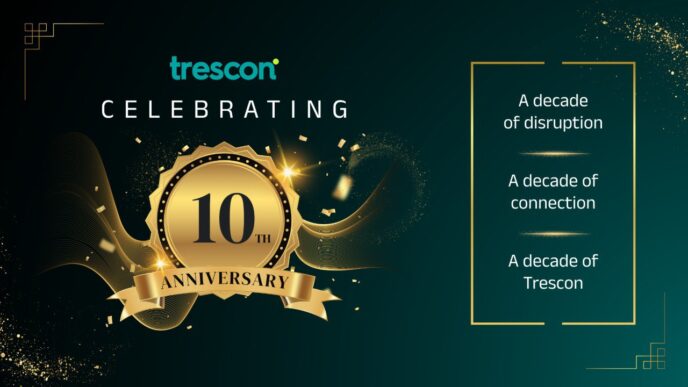We all mess up sometimes, right? It’s just part of being human. But how we handle those moments, especially at work, can make a huge difference. Instead of trying to be perfect all the time, which is honestly exhausting, admitting to mistakes can actually be a really powerful tool. It’s not about looking weak; it’s about building real connections, showing you’re learning, and making things better for everyone. Let’s talk about why owning your slip-ups is a good thing.
Key Takeaways
- Admitting to mistakes builds trust because it shows you’re honest and have nothing to hide. People feel more confident in someone who is transparent about their actions.
- Showing that you can admit when you’re wrong demonstrates vulnerability and humanity, making you more relatable and approachable to your team.
- When leaders admit to mistakes, it encourages others to take smart risks and learn from their own errors, which helps the whole team grow and innovate.
- Taking ownership of errors, rather than blaming others or circumstances, redirects energy toward finding solutions and improving future outcomes.
- Using a framework like GRACE (Get Clear, Recognize Impact, Accept Responsibility, Commit to Learning, Engage Others) can help you acknowledge mistakes effectively and turn them into learning opportunities.
The Strength in Admitting to Mistakes
It might seem counterintuitive, but admitting you messed up is actually a sign of strength, not weakness. Think about it: when someone owns their mistakes, it shows they’re not afraid to be human. This honesty builds a solid foundation of trust with the people around you. It’s like saying, "Hey, I’m not perfect, and that’s okay." This kind of transparency makes you more relatable and approachable.
Building Trust Through Transparency
When you’re upfront about errors, you’re essentially showing that you have nothing to hide. This honesty creates an environment where others feel more comfortable being open too. If people know you’re not going to sweep things under the rug, they’re more likely to believe what you say and rely on you. It’s a simple but powerful way to show you’re dependable.
Demonstrating Vulnerability and Humanity
Nobody likes a know-it-all, right? Admitting mistakes shows that you’re willing to be vulnerable. It lets people see the real you, flaws and all. This makes you more human and less like some kind of infallible robot. When leaders show this side, it gives their teams permission to be imperfect too. It’s a big part of developing intellectual humility.
The Counterintuitive Impact on Authority
It might feel like admitting a mistake would undermine your authority, but it often does the opposite. When you own up to something, people tend to respect you more. They see you as someone who can handle difficult situations with integrity. It’s a different kind of authority, one built on genuine respect rather than just a title. It shows you’re not afraid to learn and grow, which is a pretty strong leadership trait.
Fostering a Culture of Growth and Innovation

When we create an environment where it’s okay to mess up, amazing things start to happen. People feel safer to try new things, to push boundaries, and to come up with ideas that might seem a little out there at first. This willingness to experiment is the engine of innovation. If everyone’s worried about getting in trouble for a misstep, they’ll stick to what they know, and that’s how progress stalls.
Think about it: if you know your boss will admit when they got something wrong, you’re probably more likely to admit your own slip-ups, right? It’s like a chain reaction. This openness means we can catch problems earlier and figure out solutions faster, instead of wasting time pointing fingers.
Here’s how admitting mistakes helps us get better:
- Encouraging Calculated Risks: When the fear of failure is lowered, teams are more willing to take on challenging projects or try novel approaches. They understand that the outcome isn’t the only thing that matters; the learning process is just as important.
- Driving Continuous Learning: Every mistake is a chance to learn. By openly acknowledging errors, we create opportunities for everyone to understand what went wrong and how to avoid it in the future. This builds a more adaptable and knowledgeable team.
- Transforming Blame to Learning: Instead of a culture where mistakes lead to punishment or shame, we shift to one where they are seen as learning opportunities. This changes the focus from who is at fault to how we can all improve.
The Personal and Professional Benefits of Ownership
Owning up to when you mess up isn’t just about fixing a problem; it’s a serious boost for you personally and professionally. When you admit you made a mistake, you’re showing everyone that you’re not trying to be perfect, which is pretty much impossible anyway. This honesty builds a stronger connection with people around you because they see you as real and dependable.
Enhancing Self-Awareness and Skill Development
Think about it: when you mess up, you get a clear look at what went wrong. This isn’t about beating yourself up; it’s about learning. By figuring out where you tripped, you can actually get better. It’s like practicing a skill – the more you identify what you’re doing wrong, the faster you improve. This self-reflection helps you understand your own limits and where you need to grow. It’s a direct path to getting smarter at what you do.
Redirecting Energy Towards Solutions
When you try to hide a mistake or blame someone else, a lot of energy gets wasted. You’re busy covering tracks or making excuses. But when you just admit it, you can immediately start thinking about how to fix it. This shift from defense to problem-solving is way more productive. Instead of dwelling on who’s fault it is, you focus on making things right and moving forward. It’s a much healthier way to handle things, both for you and for the team.
The Ripple Effect on Team Dynamics
Your willingness to admit mistakes has a big impact on your team. If you’re open about your own slip-ups, it makes it easier for others to do the same. This creates an environment where people feel safe to admit when they’ve made a mistake, rather than fearing punishment. When everyone feels comfortable being honest, the team can learn from errors together and find better ways to work. It builds a culture of trust and shared learning, which is pretty great for everyone involved.
Navigating the Art of Admitting Errors
Admitting when you’ve messed up isn’t always easy, but it’s a skill that really builds solid relationships and helps everyone get better. It’s about being real, not perfect. When you own your errors, you show that you’re human and that you’re committed to learning.
Reflecting Before Reacting
Before you say anything, take a breath. Think about what actually happened. What was your part in it? What was the outcome for others? Trying to figure this out beforehand stops you from just blurting out something you might regret or making excuses. It’s like checking the weather before you head out – you want to be prepared.
Choosing the Right Time and Place
Don’t bring up a mistake when everyone’s already stressed or in the middle of something important. Find a quiet moment, maybe a one-on-one chat or a specific part of a meeting. This shows respect for the people involved and makes it easier to have an honest conversation. It’s not about hiding the mistake, but about addressing it in a way that’s productive.
Utilizing "I" Statements for Accountability
When you admit fault, use words like "I" and "me." For example, instead of saying "Mistakes were made," try "I made a mistake when I didn’t double-check the report." This is a direct way to take ownership. It’s also good to mention what you’ve learned from the situation and what you plan to do differently next time. This shows you’re not just admitting it, but you’re also focused on fixing it and preventing it from happening again. It’s about showing you’re ready to take responsibility.
The GRACE Framework for Effective Acknowledgment
Sometimes, things just don’t go as planned. We mess up. It happens to everyone, right? But how we handle those moments, especially when we’re in charge, really matters. That’s where the GRACE framework comes in. It’s a way to own up to mistakes effectively, turning potential disasters into chances to learn and build stronger relationships. Think of it as a roadmap for saying, "Oops, my bad," in a way that actually helps.
Getting Clear on What Happened
Before you say anything, take a breath and figure out exactly what went wrong. Don’t just jump to conclusions or try to make excuses. What was the actual sequence of events? What was your part in it? It’s easy to want to brush things under the rug or say "mistakes were made," but that doesn’t really help anyone. You need to get specific about your role. Was it a miscalculation? A missed deadline? A communication breakdown on your end?
Recognizing the Impact on Others
Once you know what happened, think about who was affected. How did your mistake ripple outwards? Did it cause extra work for your team? Did it frustrate a client? Did it delay a project for another department? It’s not just about the practical stuff, either. Think about the emotional impact. Did it make people feel stressed, confused, or unsupported? Acknowledging this shows you care about the people involved, not just the outcome.
Accepting Full Responsibility
This is the core of it. You have to own your part. No "buts," no "howevers," and definitely no blaming others. Use "I" statements. Instead of "The report was late," try "I missed the deadline for the report." Instead of "We didn’t get the information," try "I didn’t follow up to get the necessary information." This isn’t about beating yourself up; it’s about being honest and clear about your accountability. It’s about showing you’re not afraid to stand behind your actions.
Committing to Learning and Engaging Others
Owning the mistake is just the first step. What are you going to do differently next time? Share what you’ve learned from this experience. Maybe you need to set better reminders, ask for help sooner, or double-check your calculations. Make a concrete promise about how you’ll change your approach. And here’s a good part: ask for input. "What could I have done differently?" or "How can we make sure this doesn’t happen again?" This turns your mistake into a team learning moment, and it shows you value your team’s perspective.
Moving Beyond Perfection to Authenticity
We often get caught up in the idea that leaders have to be perfect, like some kind of infallible robot. But honestly, that’s not only unrealistic, it’s also a bit off-putting. When we try too hard to seem like we never mess up, we actually create a different kind of problem. People start to feel like they can’t be open with us, you know? They worry about bringing up issues or admitting their own slip-ups because they think we’ll judge them. It’s like we’re building walls instead of bridges.
The Hidden Costs of Appearing Infallible
Trying to maintain this image of perfection can really backfire. Think about it: if you’re always presenting yourself as someone who has all the answers and never makes a mistake, what message does that send? It can make your team hesitant to take chances. They might stick to the safe, tried-and-true methods instead of trying something new that could be a game-changer. Why? Because if the new thing doesn’t work perfectly right away, they might feel like they’ll be the ones taking the heat, not you. This fear can really stifle creativity and innovation. Plus, when things inevitably go wrong, the energy that should be going into fixing the problem or learning from it gets wasted on trying to cover it up or, worse, finding someone to blame. It’s a lot of wasted effort that could be put to much better use.
Shifting from Fear-Based to Love-Based Leadership
Instead of leading from a place of fear – the fear of looking bad or being wrong – we can choose to lead from a place of what some might call love, or at least genuine care and connection. This means showing up as your real self, flaws and all. When you’re willing to say, “Oops, I messed that up,” you’re not just admitting a mistake; you’re showing your team that it’s okay to be human. This vulnerability builds a much stronger connection than any display of flawless performance ever could. It creates an environment where people feel safe to be honest, to experiment, and to learn together. It’s about building trust through authenticity, not through an impossible standard of perfection.
The Leader’s Choice: Ego Versus Purpose
Ultimately, every time a mistake happens, a leader faces a choice. Do you protect your ego, or do you focus on the actual purpose of your work and the growth of your team? Do you want to be seen as someone who’s always right, or someone who’s willing to learn and grow, even when it’s uncomfortable? The most impactful leaders understand that their real authority doesn’t come from never being wrong. It comes from being real, from being honest about the journey, including the bumps along the way. Your team doesn’t need a perfect leader; they need a courageous one. They need someone who shows them that mistakes aren’t the end of the world, but rather chances to get better, together. It’s a simple choice, but it makes a world of difference in how your team operates and how much they trust you.
Practical Applications for Admitting to Mistakes
Putting the idea of admitting mistakes into practice is where the real change happens. It’s not just about saying sorry; it’s about showing your team how you handle things when they don’t go as planned. This builds a stronger, more honest work environment.
Leading by Example in Team Meetings
Start your next team meeting by sharing a mistake you made recently and what you learned from it. This immediately signals that your organization values learning over perfection. For instance, you could say, "Last week, I made a miscalculation on the project timeline, which put us behind schedule. I should have double-checked the dependencies. I’ve since adjusted our workflow to include an extra review step for similar tasks. I’m sharing this so we all know it’s okay to admit when we miss something, and it’s important we learn from it together."
Creating Connection in One-on-One Discussions
When a team member makes a mistake, sharing a similar error you’ve made and how you handled it can create a powerful connection. It reduces shame and opens the door for a more productive conversation about solutions. You might say, "I remember a time when I missed a critical detail in a client report, and it caused a lot of extra work for the team. I felt terrible about it. What helped me was talking through what went wrong and then creating a checklist for myself. How are you feeling about this, and what support do you need to move forward?"
Honesty in Public Communications
When things go wrong publicly, leading with acknowledgment rather than a lengthy explanation is often best. Customers and stakeholders respect honesty far more than elaborate justifications. If a product launch has a glitch, instead of making excuses, a public statement could be: "We’ve encountered an unexpected issue with our new software update that is affecting some users. We understand this is frustrating, and we sincerely apologize for the inconvenience. Our technical team is working around the clock to resolve this, and we will provide another update within two hours. We are committed to getting this right."
Moving Forward: Mistakes as Stepping Stones
So, owning up when we mess up isn’t just about fixing a problem. It’s really about building something stronger – trust, for starters. When we’re honest about our slip-ups, people tend to respect us more, not less. It shows we’re human, we learn, and we can handle things even when they don’t go perfectly. This kind of openness helps everyone feel safer to try new things and admit their own stumbles, which is how real growth happens. Instead of hiding errors, we can look at them as chances to get better, both as individuals and as a team. It’s a simple idea, but it makes a huge difference in how we work together and how much we can achieve.
Frequently Asked Questions
How does admitting mistakes help build trust?
When you admit you made a mistake, it shows you’re honest and have nothing to hide. This makes people trust you more because they know you’re not trying to trick them. If you always hide your mistakes, others won’t believe you when you explain things.
Why is it so hard for people to admit they made a mistake?
It’s tough because admitting mistakes can make us feel like we’re not good enough or that we’re losing control. It feels like showing you’re not perfect, which can be scary. But it actually helps us learn and get better.
How does admitting mistakes help a team or company grow?
When leaders admit their mistakes, it makes it okay for everyone else to admit theirs too. This creates a place where people feel safe to try new things and learn from what happens. It stops people from being afraid of messing up and encourages new ideas.
What’s a good way to admit a mistake?
Instead of getting upset or making excuses, take a moment to think about what happened. Figure out what went wrong and how it affected others. Then, say clearly that you made the mistake, explain what you learned, and how you’ll do better next time. It’s like a recipe for fixing things.
What are the personal benefits of owning up to mistakes?
When you admit your mistakes, you learn more about yourself and how to do things better. It helps you fix problems instead of wasting time blaming others. This positive attitude can spread to your whole team, making everyone work together better.
Does admitting mistakes make a leader seem weak?
It’s not about being perfect all the time. It’s about being real and showing that you’re willing to learn. When leaders are open about their mistakes, they show their human side, which makes them more respected and trustworthy, not less.














